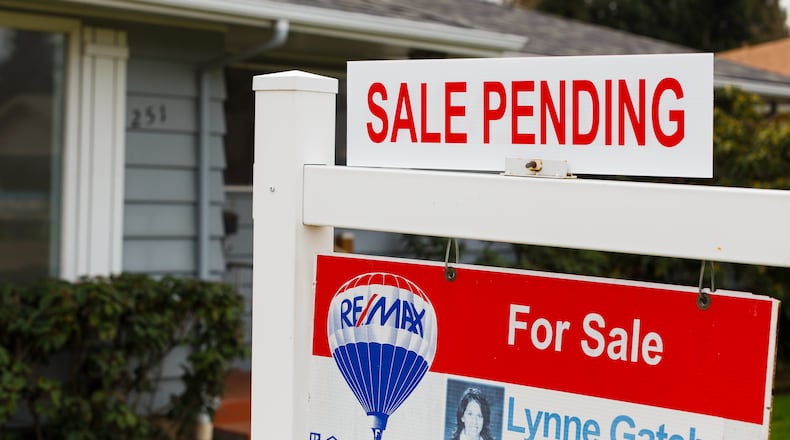The median price of a home sold in metro Atlanta last month hit $354,000, up only slightly from October, but a rousing 24% above the price in November 2020, according to the real estate company Re/Max.
The number of sales in the region slipped from October to November, as it usually does. But the nearly 8,000 homes sold was also 7% fewer than a year earlier, a sign experts say points to an increasingly acute shortage of homes listed for sale.
After the early pandemic shutdowns passed, Atlanta housing prices took off. And while the pace has eased a bit, the trajectory has continued, with no reason to expect a change in direction in 2022, said Kristen Jones, owner of Re/Max Around Atlanta. “We expect the market to remain strong. Sellers will continue to find this a favorable market with homes selling quickly and for top dollar.”
The number of homes listed for sale in November was down 23% from a year earlier — when it was already considered extraordinarily low.
The market snapshot from Re/Max, which cover 28 counties, was echoed by several other reports issued this week which covered different parts of the region. All of the data painted portraits of a market with too many wannabe buyers chasing too few homes listed for sale.
Inventory — the number of listings — has been “desperately low,” said Cynthia Lippert, president of the Atlanta Realtors Association. “Buyers may be hoping to take advantage of a seasonal lull in activity, but we’ve yet to see one, and until we get more supply of housing across price points, we’re not going to see one anytime soon.”
The association, which uses data collected by First Multiple Listing Service, found that the most active market was Fulton County, where 1,526 homes were sold last month. The $410,000 median price for a home in Fulton was the highest among four core counties.
Today’s shortage of homes for sale started with a glut.
Fourteen years ago, the market was flooded with homes, as frenetic homebuilding and a spate of bad mortgages triggered a wave of foreclosures and the Great Recession. In the years afterward, homebuilding was minimal. Even now, the pace of construction is nowhere near that of the boom before the bubble burst.
It is a problem that makes itself worse: When home listings are scarce, people hesitate to sell their own homes, fearing they won’t find another place they want. And the more people who hesitate, the worse the shortage becomes.
“What should be happening is baby boomers should be adding to inventory by selling, but there’s nowhere for them to move,” said John Hunt, president of MarketNsight, which tracks a number of southeastern housing markets. “This is a vicious cycle and we are going to be like this for a long time.”
To meet demand, metro Atlanta needs 90,000 more housing units, he said.
That is because demand for homes — at an ebb during the recession — has been surging. The ability for remote work during the pandemic spurred many people — especially renters — to seek larger homes. Moreover, many professionals kept their jobs and often received raises. And metro Atlanta’s population is growing faster than in many other parts of the country.
Historically low interest rates have added fuel to that demand, giving consumers more buying power.
Some of that propellant may disappear in the coming year, given recent warnings from the Federal Reserve of the need to ratchet up interest rates to rein in inflation. That might dampen some demand, but the essential ingredients of the market won’t change, said Bill Adams, president of Adams Realtors.
“With demand continuing to outpace the supply of homes for sale, I expect that we will continue to see price appreciation despite the ongoing pandemic,” Adams said.
Median sale price, core counties
Fulton: $410,000
Cobb: $380,000
DeKalb: $365,000
Gwinnett: $365,000
Source: First Multiple Listing Service
________________
Metro Atlanta housing market, compared to a year ago
Median price: +24%
Number of sales: -7%
Listings for sale: -23%
Metro Atlanta housing market, compared to a month ago
Median price: +1.4%
Number of sales: -10%
Listings for sale: -8%
Source: Re/Max
About the Author
Keep Reading
The Latest
Featured




